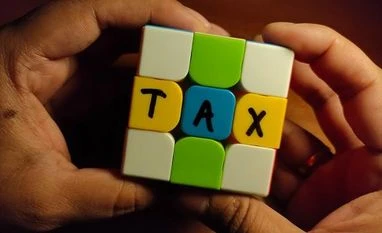Currently, tax collection at source (TCS) is levied at the rate of 5 per cent on remittances above Rs 7 lakh under the liberalised remittance scheme (LRS). Union Budget 2023 has proposed to hike the TCS rate from 5 per cent to 20 per cent on all foreign remittances except those meant for education and health care.
Pallav Pradyumn Narang, partner, CNK says, “The Rs 7 lakh threshold has been removed for all purposes other than education (loan funded or own) and medical.” Money remitted abroad for the purpose of medical treatment and education (other than that funded by an education loan in case of the latter) will continue to attract TCS at 5 per cent if the amount is above Rs 7 lakh.
According to Adhil Shetty, chief executive officer, Bankbazaar.com, “The TCS on education loan payable abroad remains at 0.5 per cent for remittances above Rs 7 lakh. No TCS is applicable on remittance below Rs 7 lakh.”
Living expenses will be affected
Parents often send their own money to help their children meet their living and other ancillary expenses. If they can establish that the money is being sent for education purposes, the amount will be taxed at 5 per cent (once it exceeds Rs 7 lakh). The problem will primarily arise in establishing to the bank or fintech player that the money is being sent is for the purpose of education.
If the funds transferred are used to pay tuition fees, it’s very clear that it has an educational purpose. Vivek Jalan, partner, Tax Connect Advisory, says, “If the student lives in the hostel of the university, it can be established that the 5 per cent rate should apply.”
But students often live in flats outside the campus, and commonly in accommodation sublet by another student based on a verbal agreement. In such cases, establishing the education link will prove difficult.
The reason for sending money abroad has to be mentioned in the remittance form. Jalan says, “If a parent fails to establish a link, it will go under ‘other purpose’ and TCS at 20 per cent will apply.” Banks and fintech players are likely to implement the higher TCS rate strictly for fear of being penalised by the tax authorities. “Parents are already facing the brunt of global inflation. Having to pay TCS at 20 per cent on living expenses will add to their burden,” says Shetty.
Children are often given forex cards by parents or education loan providers to meet living expenses. Currently there is no clarity on the TCS rate that will apply to money remitted abroad via this route.
What can you do?
After this proposal is implemented, students studying abroad should give preference to university- or college-provided accommodation if the cost-differential is not very high. This proposal will come into force from July 1, 2023. “Prepone the transfer of funds before the change comes into force,” says Vishal Dhawan, chief financial planner, Plan Ahead Wealth Advisers. He concedes that this would create a couple of risks. One, your child would have too much money in his hands which could be misspent. Two, with cyberattacks being common abroad, your child could be exposed to that risk if he has a large amount in his bank account.
Lastly, remember that TCS is not a cost. Aditya Chopra, managing partner, Victoriam Legalis-Advocates & Solicitors, says, “TCS is reflected in Form 26AS as a tax credit, which can be claimed against the tax payable while filing the ITR.”
Hence, this is only a one-year issue. “You will be able to offset the amount deducted as TCS against your other tax liabilities. Once you start getting the refund amount, you can recycle it,” says Dhawan.
Naveen Chopra, founder, The Chopras, a pan-Indian education consulting company, says, “It’s just that you need to adjust to the new financial reality for a limited period. Don’t let that deter you from pursuing the foreign education goal which can have a life-changing impact.”
Unlock 30+ premium stories daily hand-picked by our editors, across devices on browser and app.
Pick your 5 favourite companies, get a daily email with all news updates on them.
Full access to our intuitive epaper - clip, save, share articles from any device; newspaper archives from 2006.
Preferential invites to Business Standard events.
Curated newsletters on markets, personal finance, policy & politics, start-ups, technology, and more.
)